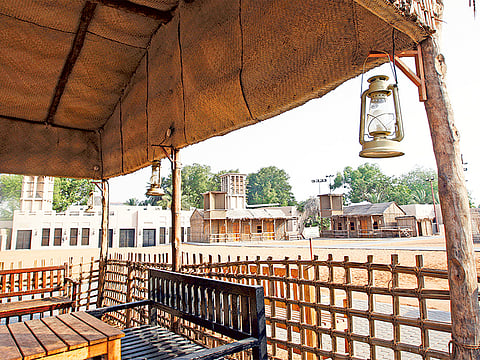Antiquities draft law to be debated
FNC member asks for more holidays in Ramadan

Abu Dhabi: Members of the Federal National Council (FNC) are due to debate on Tuesday a federal law to protect historic sights and artefacts and halt looting or trade in these unique treasures across all emirates.
The new legislation would prohibit individuals from selling or defacing historical buildings and documents because it belongs to the history and culture of the country, with anyone who defaces or destroys an antiquity facing a minimum of two years in jail and Dh10 million in fines.
The House has discussed the first six articles of the bill, which also requires the President’s final endorsement into a law.
Under the draft law, fines of up to Dh10 million and jail time will be handed to anyone found guilty of destroying, damaging or distorting antiquities.
Offences such as building, planting or changing the characteristics of an archaeological site, undertaking archaeological digging without a permit, smuggling antiquities into or out of the country, or replicating a national or foreign antiquity to scam others will be punishable with the same penalties.
Those who violate licensing conditions for digs, or take, transfer or use archaeological ruins or stones without a licence, face jail time or fines ranging between Dh100,000 and Dh300,000 or both.
The bill suggests that rewards be given to residents who discover or report antiquities, stating that whoever discovers or comes across an antiquity by coincidence must report it to the authority concerned or the nearest police station within 48 hours.
Members of the council are also due to question Abdul Rahman Mohammad Al Owais, Minister of Health, about disinfection of hospitals to reduce health care-associated infections and provide patients with a clean and safe environment.
The World Health Organisation (WHO) estimates that at any time, more than 1.4 million people worldwide are affected by infections acquired in hospitals.
Cleaning, disinfection and sterilisation save lives and improve patient outcomes
Between 5 per cent and 10 per cent of patients admitted to modern hospitals in the developed world acquire one or more health care-associated infections,
Al Owais will also be quizzed on measures taken to ensure cafes’ abidance by the anti-tobacco laws. Under the rules, shisha cafes and shops selling tobacco products must not be near schools and mosques. A minimum distance of 15 metres should be maintained from kindergartens, schools, universities and colleges and a minimum of 100 metres from places of worship. A minimum of 150 metres from residential areas is the rule for shisha cafes.
Shisha cafes are subject to specific rules when it comes to their opening hours. The regulations specify that these cafes must comply with working hours from 10am to midnight. Shisha may not be served to customers younger than 18 years, and the cafes will be forbidden from delivering shisha to apartments,
Members of the House will also debate a draft law concerning the 2016 budget of the Federal National Council.
Mosabeh Saeed Al Katbi, a member from Sharjah, will put a question to Hussain Ebrahim Al Hammadi, Minister of Education and Chairman of the Government Human Resources Authority, to turn the last 10 days of Ramadan into a public holiday for staff in public entities.



